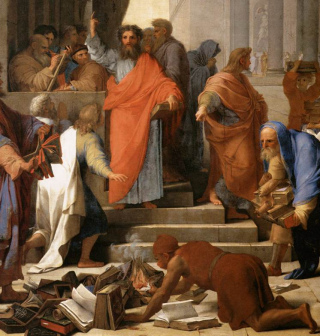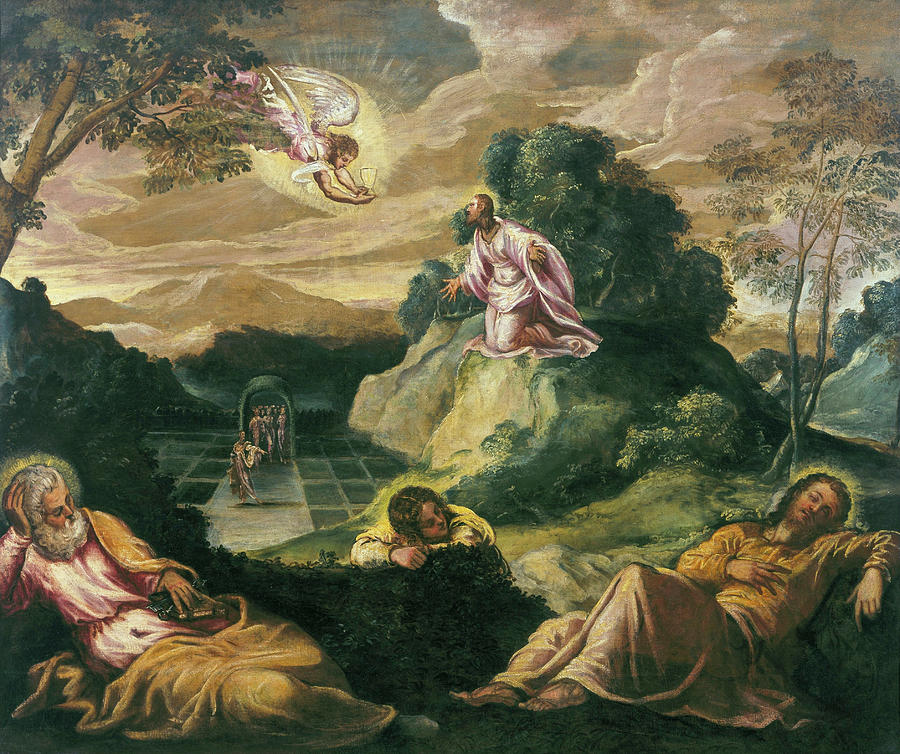You’ve likely heard such claims. Some assert it is comparable to all or many other religions. They teach that we by our works earn some form of a future or some form of “salvation.” Then they point out how other religions do the same, so we’re all similar. I will examine five major religious systems: Hinduism, Buddhism, Modern Spirituality, Islam, and Christianity.
NOTE: I am not an apologist or an expert on comparative religions. I have examined some of the writings from these religions. I’ve read what they say, not what others have written about them. The following study will consider what their own adherents or teachers say on the following subjects. This is not an in-depth study on various religions. This is a brief survey of how some compare to Biblical Christianity or are different from it. My emphasis is on Christianity. I am biased!

Christian, be wise, no one is saved by our proving that their religion is wrong. No one is saved by a debate on these issues (1 Cor. 1:17-21). I am considering these differences simply to demonstrate for our own sake, that Christianity truly stands distinct.
What do religions teach about “God”?
Not all religions believe in God in the Christian sense of God. As Christians, we think that while other religions worship the wrong god or gods, we assume they worship some god. This is not necessarily true.
Buddhism does not believe in god or gods. Buddhism thinks that all things are involved in a continuing cycle of birth-life-death-rebirth. They think that some people have ascended to a higher level of existence (Buddhists do not agree on the exact nature of the ascent). They do agree that these individuals have not become gods.
Hinduism believes in many gods, thousands of gods to be exact. These gods demand appeasement and worship. They have many sacred texts (like their bibles). Many of those texts often tell the stories of their gods. They tell of the wars and conflicts between their gods each seeking priority.
Modern Spirituality is a godless set of religious activities by which people become more in touch with our world and themselves. Therefore, modern spirituality does not believe in god. They teach that we must work to advance to oneness with all other living things. In this way, it bears similarity to Buddhism.
Islam believes in one single eternal god, Allah. He has no partner, no son, and no daughter. He is a single person, unlike the Christian God who is one being but three persons. This god cannot be the Biblical god because the Biblical God is the Father and the Son, as well as the Spirit.
Christianity believes in one single eternal God who even in the Old Testament presents Himself in a plurality and makes this clear in the New Testament. This plurality is three persons, not two, not one in three versions, but one God who is simultaneously three distinct persons. God is one (Deut. 6:4). God is plural (us, our)(Gen. 1:26). God addresses another who is God as God (Ps. 45:6-7). God is presented as three: “Me” (The Son), Lord Jehovah, and His Spirit (Isa. 48:12, 16; Mt. 28:19). God does not change (Mal. 3:6). God may do different things but does not change or evolve in His nature.
What do religions teach about “salvation”?
Again, as Christians, we likely assume all religions have some version of salvation. This is not necessarily true. If religions teach “salvation,” they do not all use that same terminology. If religions teach “salvation,” they do not all mean the same thing.
Hinduism teaches that people make their lives better by serving and worshipping these gods. As they serve those gods, the gods help them in their journey of life. If they do well, they can be reincarnated (rebirthed) in a higher caste until eventually they reach the “heaven” where these gods dwell.
Buddhism teaches that we are born, reborn, and reborn to suffering. So we are to work to be better so that our suffering and the suffering of others will be less in the next life (karma). Ultimately Buddhism teaches that our hope is to advance to a state free of suffering, free of what we understand as consciousness. Buddhists do not agree as to whether we reach some universal consciousness blended with all other beings and lose our individuality, or move out of consciousness to a nothingness, a nirvana.
Modern Spirituality is similar to Buddhism but thinks that we maintain some form of consciousness. We may gain the ability in a future non-corporeal state, like a god or a force to interact and affect things in the world. We achieve this by how we live now (like karma).
Islam teaches that man is born sinless and innocent but when we sin we need to seek Allah’s forgiveness. We do this by repenting and working to be better and do good so we can be saved from the fire. Allah requires devotion only to him. Allah does not require a sacrifice or death for sin, except as punishment for one’s personal sins. Islam teaches that salvation is by works, not faith.
Christianity based on Scripture teaches that man is born sinful, and willingly sins in life. Death is a consequence of sin (Rom. 5:12).1 All people continue to sin (Rom. 3:23; 1 Ki. 8:46). Physical death follows spiritual death as a consequence. Death is the separation first of man from God and then of man from the physical body. God did not send man away. Rather man attempted to hide from God. Man sinned and tried to stay away from God and continues to reject God. Yet, God sent His Son to bear our punishment so we can be forgiven and do not have to suffer eternal death.
God showed love for us by sending His Son to die for our sins and us as sinners (John 3:16; Rom. 5:6-10). Christ died for us while we were weak and defiant to God (ungodly) (5:6). He died for us while we were unrepentant sinners (5:8). He died for us while we were God’s enemies, not seeking His forgiveness or trying to be better (5:10). After Jesus died, God raised Him from the dead (Rom. 4:24-25). The Lord Jesus Christ did all the work for our salvation.
Biblical Christianity teaches that on our part, salvation not by our works, but that God saves us through our personal faith in what Christ did (Rom. 4:5). He declared Abraham righteous by faith (4:3). He declared David righteous apart from works (4:6-8). He declares us righteous by faith in His raising Jesus our Lord from the dead and that He was delivered (died) for our trespasses (4:22-25). Because God declares us righteous by faith, His promise can rest on His grace (4:16).
Christianity rests on One God who provided the means for us to be saved and offers us salvation by His grace through our believing in Christ. This is distinct from “religion” which rests on our works and efforts. One reason Christianity is often thought to be similar to other religions is that we misrepresent it as a religious system. Some teach that works are required to be acceptable before God.
Is Christianity a religion?
In our English Bibles, the word “religion” occurs five times. The English word “religion” derives from the Latin word “religare” meaning “to bind” and the French “religio” meaning “obligation, bond, or reverence.” Originally in English, the word religion was used for living under vows. It came into English as duties one observes as a “Christian,” and defines Christianity as responsibilities towards God.
The Greek word thrēskia meant “holy service, religious service, or observance. It derives from the word thrēskos which meant “fear of the gods.” The fear of the gods drove people to act so as to appease the gods or maintain their favor. The people feared what an unappeased god might do to them. The Greek words thrēskia and thrēskos occur six times in the New Testament. First, The Pharisees were a strict sect of the Jewish religion (Acts 26:5). They attended carefully to the details required of them. Judaism involved fear of God (Deut. 6:1-3). Judaism had many rules for how Israel could approach their God. Second, pure and undefiled religion involves duties such as caring for people (Jas. 1:26-27). Some people impose religious activities upon themselves (Col. 2:18). Strict rules appear wise as they reflect a religion produced by one’s desire (Col 2:23). People think that if they perform well, and attend to duties, God will be pleased with them.
Christianity rests on God, His work, and His grace. We are not only saved eternally by God’s grace through our faith, but we also live by faith and grace. We are under grace (Rom. 6:14). God guarantees us that nothing can separate us from His love (Rom. 8:38-39). We are called to live worthy of God’s call to us in Christ not to earn it (Eph. 4:1). We already have it. We do not earn our future for even our future comes from Christ bringing to us grace (1 Thess. 5:9-10; 1 Pet. 1:13). Christianity is not a religion. It is not a set of duties. It is not a life from fear of displeasing God. It is a life lived in light of all God’s gracious and sure provisions.
- This verse is about the sin nature and spiritual death. ↩︎














